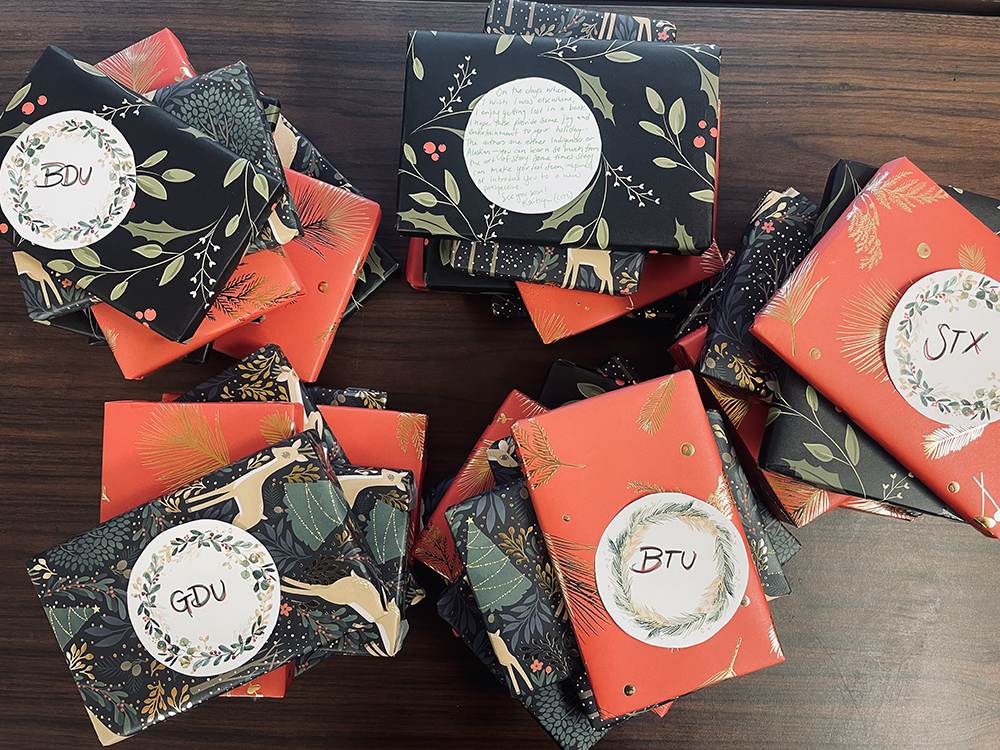16 Feb Helping Youth Work Toward a Better Future
CITC offers the only youth-focused reentry program in the state—hoping to help kids get on the right track
Written in collaboration with Kaitlyn Hickey

At 8 a.m. on a Saturday, the doors of McLaughlin Youth Center opened, and CS walked out of the facility.
Three years before, his arrival at the facility was quite different. His hands were cuffed and chained to his waist, guards flanked him on either side, and he was led to a cell in the facility’s most secure and restrictive unit. At just 15 years old, CS had been sentenced to McLaughlin for a violent crime.
Toward the end of his confinement, CS had the opportunity to go shopping for school clothes with a CITC Youth Reentry staff member. He traded his prison garb for new jeans and flannels. As he meticulously went through the aisles to find the right school supplies, he smiled at the CITC employee.
“It’s been a while since I had choices,” he said.

Stepping in at the Right Time
More than 40 percent of the nation’s youth who are charged with crimes like CS’s will be incarcerated again before they turn 25—and the crimes they commit later are more likely to increase in harmfulness.
“Time and time again, adult offenders reflect on having needed someone to step in at that pivotal stage of youth before behaviors escalated—and yet much of reentry work is done after incarceration, not during,” explained Kaitlyn Hickey, a youth advocate with CITC’s Youth Reentry program.
Reentry: It’s the term for a person rejoining the greater community after incarceration. And while Kaitlyn’s team provides services for young people who have left or are leaving detention facilities like McLaughlin, the bulk of their work begins on the inside.
The advantage of working with youth while they’re still incarcerated, Kaitlyn said, is continuity of care.
“We’re able to carry that relationship past probation,” she said. “We also have a unique role in that we’re not their parole officer, their judge, or their parent. So they know that when I come in there, I’m that neutral party.
“We believe youth have the capacity to be restored, but also that their crime and what produced that crime is also hurting the community,” she added. “And if we don’t work on your restoration, how can we work on the community’s restoration?”
Filling the Gap
CITC’s Youth Reentry Program—previously administered by the Alaska Native Justice Center, a CITC affiliate—is the only program in the state supporting youth transitioning out of incarceration.
“That can be a frustrating gap because when you work with adults in prison, you almost always leave thinking, Why couldn’t someone have stepped in when you were 16?” Kaitlyn shared. “There is this really special, pivotal time where [young people] have the chance to turn it around—but there’s not a lot of people for them to go to.”
CITC provides those mentors. Youth advocates visit McLaughlin daily, providing support groups, cultural activities, case management, academic assistance, and referrals to any services CITC can’t provide.
Alaska Native youth are disproportionately represented in McLaughlin and similar facilities, and the program emphasizes Alaska Native cultural values through its entire array of services. The program, though, is open to any young person between the ages of 14 and 22, regardless of ethnicity or heritage.
“It’s really about taking [Alaska Native] cultural values and using them as a platform to teach some of those really important lessons,” Kaitlyn explained.

“See You Outside”
CS served his time at McLaughlin through the years of COVID restrictions and lockdowns. Thanks to youth reentry grants, though, community partners were able to maintain a few of the programs that make incarceration more bearable.
Rather than turning inward during this restrictive time, CS reached out. He joined Youth Reentry Talking Circles and development and cultural groups; he put his efforts into school and his physical health. Rather than letting missed moments like graduation bring him to a point of cynicism, he used those experiences as motivation, applying to scholarships and enrolling in classes at the University of Anchorage Alaska.
Shortly before his release, one of CITC’s Youth Reentry staff walked CS through the resources available to him—reminding him that CITC would continue to provide support as he transitioned into the community.
“I’ll see you outside of here,” the staff member told CS, who smiled in response—perhaps because he knew that, coming from CITC, the words weren’t just a casual goodbye; they were a promise that he would have someone to walk by his side, through his release, and into a better future.
Do you know a young person in need of support during incarceration? CITC assists youth 14-22 years of age who are being or have been recently released from area youth detention facilities. Learn more about Youth Reentry here, or reach out to the reentry team today at youthreentry@citci.org or (907) 793-3458.


